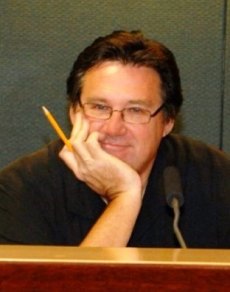What will it cost if we don't fix our nation's infrastructure?

I write of course about driving on Interstate 5 between Harris Ranch and San Francisco, where chances are your vehicle’s transmission, or your stomach, may not survive the trip.
It’s no secret our nation’s bridges, roads and highways are in dire need of repair. The American Society of Engineers, gives the nation a D+ when it comes to maintaining or improving our nation’s vast infrastructure. It also says we will need to spend $3.6 trillion by 2020 in order to upgrade our roads, bridges, water systems and more.
http://www.infrastructurereportcard.org/
Once every four years the American Society of Engineers issues its report card. The last report card, issued in 2013, obviously wasn’t very good. A D+ in high school means you may get a diploma, but what is it really going to be worth? Is that how we want to treat our roads, bridges, dams, drinking water, and all the other nice things that make up our infrastructure and makes us a great nation?
The ASCE assigns its grades based on eight criteria: capacity, condition, funding, future need, operation and maintenance, public safety, resilience, and innovation, and since 1998, as a society we’ve essentially been failing. In other words, I may get that diploma, but I’m sure as hell not going to show it to anybody.
The experts say it’s probably not too late to fix our system before it really gets broken, before a bridge falls into a river (which already happened a couple of years ago in Minneapolis) or a road gets so many potholes, that it becomes worthless and instead becomes a breeding ground for tadpoles.
Deteriorating roads and bridges lead to a decline in the nation’s economic health. Poor infrastructure leads to increases in operating costs for cars and trucks, damage to vehicles from road deterioration, lost wages, and much more.
According to a 2010 ASCE study, deficiencies in America’s surface transportation systems cost households and businesses nearly $130 billion, including vehicle costs, travel delays, safety costs and environmental damage.
California expects it would cost well over $100 billion to repair the state’s infrastructure. Where will the money come from?
Much of the funding for our nation’s roads and bridges come from the Highway Trust Fund, which is derived from gasoline taxes. Every year the Trust Fund gives states over $45 billion to repair and modernize much of the country’s transportation system.
It isn’t nearly enough. It’s just a drop in the bucket. Not only that, our elected representatives can’t seem to agree on what needs to be done. Everybody else, from Alaska to Miami, knows what to do, why does Congress seem oblivious? Because for many Representatives, that would mean raising gasoline taxes, and many Congressmen, particularly Republicans, are loath to raise any taxes, and would prefer instead to watch Rome burn than to levy a nickel more of new taxes.
The last time federal gasoline taxes were raised was in 1993. Even I got raises over the course of the past 25 years. Soon I hope to be making a whopping $10 an hour.
We obviously need bold leadership to solve our infrastructure problem, but the current outlook doesn’t appear promising. Our current leaders have done nothing but put off the problem over and over again.
Expecting the nation’s representatives to accomplish something to fix our infrastructure problems is akin to me purchasing tickets for a Beatles concert, but when I arrive at the venue I get Barry Manilow instead. It’s disappointing, downright suicidal.
As our nation’s leaders continue to fiddle, our roads continue to fall apart, our bridges become less reliable and the cost for fixing it all continues to escalate. And while Rome bickers, we fall behind in transportation reliability. We’re no longer No. 1 in the world. And that’s sad because we have the means and wherewithal to be the best in the world.
Opinion
- Valadao supports rural cooperatives, communities with legislation
- Kings Democrats condemn vandalism at Rep. Valadao's Hanford office
- Breaking down barriers to care and protecting seniors' well being
- A public perspective on health care and Medicare Advantage
- The Leader recommends Lupe Solis, Joe Neves be returned to local elected positions
- Westlands Water District celebrates 70th anniversary in San Joaquin Valley
_0.jpg)

.jpg)



